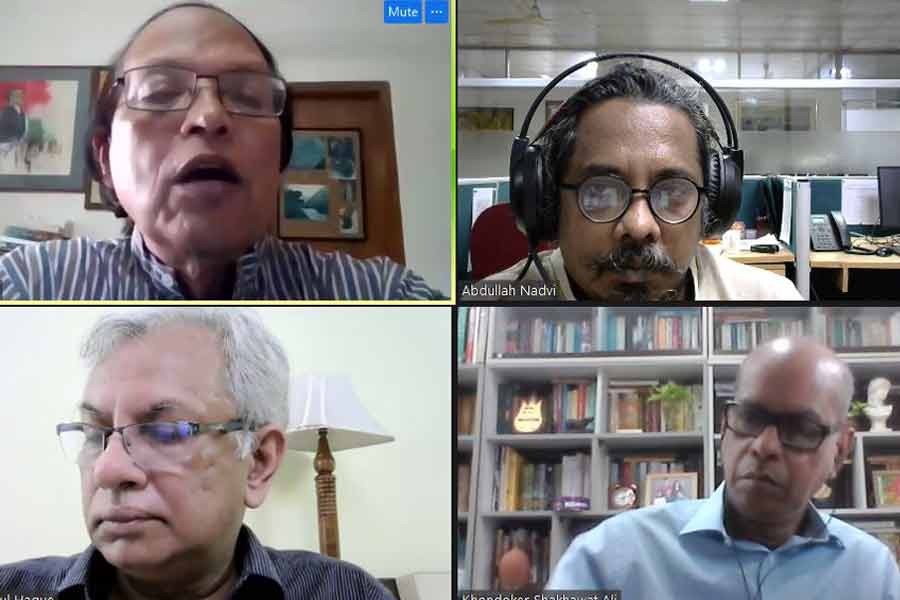Eminent economist Dr Atiur Rahman has said the government should prioritise vaccinating 60 to 70 per cent of the population as soon as possible to get success in social and economic recovery from pandemic-induced slowdown.
“We should worry less about growth rate, deficit finance etc. and prioritise how to vaccinate 60 to 70 per cent of the population as soon as possible,” Dr Atiur Rahman said.
“People will be relieved after vaccination and business confidence will also enjoy a boost. This, in turn, will ensure the success of our campaign of economic and social recovery,” the former Bangladesh Bank governor added.
The economist came up with the statement while presenting the keynote paper at a post-budget reaction session (online) organised by non-government think tank Unnayan Shamannay on Saturday, according to a press statement.
Emeritus Fellows of the organisation economist Dr A K Enamul Haque and Sociologist Khondoker Shakhawat Ali were present as panel discussants.
Dr Atiur Rahman identified the industry and business-friendly tax proposals as the strongest part of the proposed budget.
He said that considering the pandemic-induced economic slowdown, the revenue collection target for the National Board of Revenue (NBR) has been revised downwards for the ongoing fiscal year, and for the coming fiscal year it remains equal to the proposed target for the ongoing fiscal year.
He opined that attaining the Tk 3.3 trillion target will be very challenging for NBR and they must show utmost efficiency to be successful.
Dr A K Enamul Haque pointed out that conventionally the social safety nets are targeting those living below the poverty line. “Considering the current situation safety nets are required for those living just above the poverty line. Universal Pension Scheme could be a good way to do so.”
Khondoker Shakhawat Ali advised that the budget proposal, along with setting the target of vaccinating 70-80 per cent of the population, should also present a clear timeframe to attain that target.
According to him, the government should have an aim to attain this target within the coming fiscal year.
“To do so, the government should initially prioritise importing vaccines and then move to produce those,” he suggested.
The economist said the government should bolster diplomacy in this regard.
In response to a query from a journalist, the economists said that increased allocations will not bring desired change unless the health expenditure structure is reshaped.
They inferred that launching a health voucher scheme could be a good way to provide support to those seeking service at private healthcare facilities.


